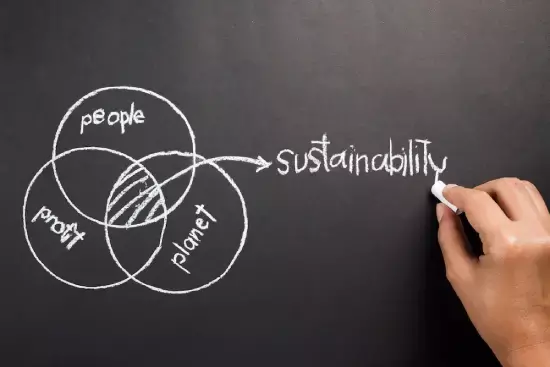
In today’s digital age, information technology (IT) has become an integral part of our lives. We use laptops, tablets, smartphones, and other electronic devices to communicate, work, and entertain ourselves. However, as technology advances, old devices become obsolete and are often discarded without much thought. Unfortunately, this e-waste can have serious consequences for the environment if it is not disposed of properly. That’s why IT recycling is so important.
What is IT Recycling?
IT recycling is the process of reusing or refurbishing old IT equipment, or recycling the materials from the equipment to create new products. IT recycling companies in the UK can handle a range of devices, including computers, monitors, printers, and mobile phones.
The environmental benefits of IT recycling
1. Reducing landfill waste
When electronic devices are discarded, they often end up in landfills. E-Waste can take hundreds of years to decompose, and can release toxic chemicals into the environment. By recycling IT equipment, we can reduce the amount of e-waste that ends up in landfills and help to protect the environment.
2. Conserving natural resources
Many of the materials used in electronic devices , such as metals and plastics, are non-renewable resources. Recycling these materials reduces the need for new resources to be extracted from the earth, which can help to conserve natural resources.
3. Reducing greenhouse gas emissions
The production of new electronic devices requires a lot of energy, which leads to greenhouse gas emissions. By recycling old IT equipment, we can reduce the demand for new devices, which can in turn reduce greenhouse gas emissions.
4. Creating new jobs
IT recycling creates new jobs in the UK. Recycling companies need workers to collect, sort, and process old IT equipment, as well as IT technicians to refurbish the equipment. By supporting IT recycling, we can create new jobs and support the UK economy.
Why It’s Important for Businesses to Help Preserve Our Environment
The world is facing numerous environmental challenges, including climate change, deforestation, air and water pollution, and biodiversity loss. These challenges are having a significant impact on our planet and are affecting the health and well-being of people and wildlife. To address these issues, it’s essential for individuals and organisations to take action and help preserve our environment.
1. Protecting the planet
 Businesses have a significant impact on the environment, as they consume resources and generate waste and emissions. By reducing their environmental footprint, businesses can help to protect the planet and prevent further damage to the environment. This can include reducing energy consumption, using renewable energy sources, reducing waste, and minimizing the use of harmful chemicals.
Businesses have a significant impact on the environment, as they consume resources and generate waste and emissions. By reducing their environmental footprint, businesses can help to protect the planet and prevent further damage to the environment. This can include reducing energy consumption, using renewable energy sources, reducing waste, and minimizing the use of harmful chemicals.
2.Meeting customer expectations.
Consumers are increasingly concerned about the environment and are looking for businesses that share their values. In a recent survey, 81% of consumers said that they feel strongly that companies should help improve the environment. By prioritising environmental sustainability, businesses can attract and retain customers who value sustainable practices.
3. Cost savings
Implementing environmental sustainability measures can help businesses to reduce costs in the long run. For example, investing in energy-efficient equipment can lead to lower energy bills, while reducing waste can reduce the cost of waste disposal. Additionally, businesses that take steps to reduce their carbon footprint may be eligible for tax credits and other financial incentives.
4. Attracting talent
Many employees are looking for companies that share their values, including environmental sustainability. By prioritising sustainability, businesses can attract and retain top talent who are passionate about making a positive impact on the environment.
5. Long-term viability
Sustainability is not just about protecting the environment – it’s also about ensuring the long-term viability of businesses. As natural resources become more scarce, businesses that prioritise sustainability will be better equipped to adapt and thrive in a changing world.
6. Winning new business
By being sustainable, businesses can differentiate themselves from their competitors and win new business. Sustainable practices can be a selling point for businesses, particularly in industries where environmental impact is a concern. For example, a hotel that uses renewable energy or has a low-carbon footprint can attract environmentally conscious guests. A clothing company that uses sustainable materials or has a recycling program can appeal to customers who are concerned about the environmental impact of fast fashion.
Businesses have an important role to play in protecting the environment. By reducing their environmental footprint, businesses can help to protect the planet, meet customer expectations, reduce costs, attract top talent, and win new business. If your business is not already prioritising environmental sustainability, now is the time to start. By taking action today, you can help to preserve our planet for future generations, and position your business for long-term success.
